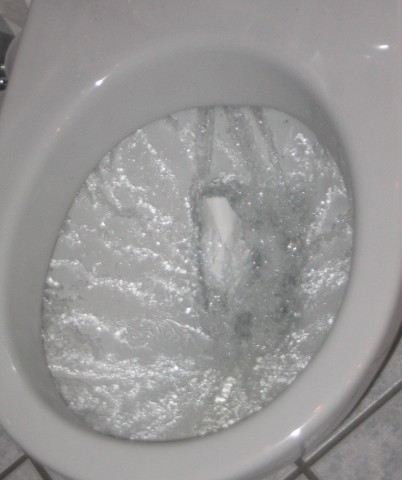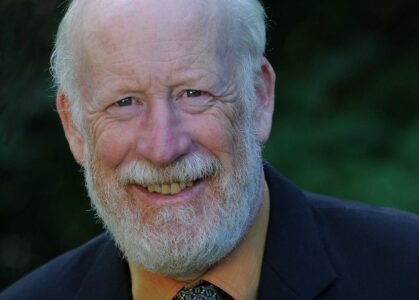Regional sewer deal gets flushed
Another regional service review has come and gone this year with no real resolution. Just as the Regional Recreation Service review last year concluded without a unanimous decision, so too has the more recent Sewer Service review.
Last year, the City of Trail called for a review of the sewage agreement between the communities of Rossland, Trail, and Warfield, all of which use the same system (with the treatment plant in Trail behind the SPCA). The current SLP (supplementary letters patent) agreement between the communities gives any partner in the service the right to call a review at any time. Part of the reason Trail called the current review was a feeling that the cost apportionments were no longer fair given population changes over time.
Under the current cost apportionment system, Trail pays 68.95%, Warfield pays 10.14% and Rossland 20.91% of the total $1,073,000 cost. That breaks down as $740,000 from Trail, $108,000 from Warfield and $224,000 from Rossland.
That formula was developed many years ago, and while the records from that era are sketchy, if existing at all, it was assumed that formula was developed to consider the industrial tax base in Trail which contributes approximately 2/3rd or the city’s tax revenues. Rossland, on the other hand, has a negligible industrial and commercial tax base, putting more of the load on residential taxpayers.
As part of the review process, a committee of three councillors (one from each of Trail, Warfield and Rossland) got together over a series of meetings to work towards a cooperative and equitable solution for all three partners in the service. One of the key thoughts behind developing a new formula was to promote water conservation, thus saving operational costs to the service. In that vein, the committee explored various options around billing for the service based on sewer flows coming out of each municipality.
One aspect to consider in that plan is that with our aged infrastructure in the region there are some serious I&I (Inflow and Infiltration) issues. In other words, there is water getting in and out of the system where it shouldn’t be. I&I was factored into the formula as basing rates on sewage flows would provide an inventive for all communities to repair and fix the issue.
Problems arose over a straight billing-by-flow formula when it was discovered that the flow monitoring stations were not providing reliable data. In Trail, for example, between the Gulch and the treatment plant, there was a negative flow showing. In short, that’s less sewage coming out from Trail than going in. Without reliable information on current flows, the City of Rossland was reluctant to go down that road.
From there a second formula was put together to address sewage flow data concerns and a new formula based on 50% population and 50% water flows as measured coming out of the treatment plants in Rossland, Warfield and Trail. The sewer committee recommended this option and it was taken to the three councils. Trail approved the new formula. Warfield approved the new formula but Rossland did not.
“Rossland has said, ‘we’re not interested’, so that’s it for now,” commented Trail Mayor Dieter Boggs. “They said, ‘we like the formula that Trails pays’. We’re not very happy about that so here we go again. They didn’t like recreation and now they don’t like sewer. We accommodated Rossland’s initial concern about the flow data. I don’t know what their latest concern is, to tell you the honest truth.”
The new formula–based on 50% population and 50% flow–would have reduced Trail’s share of the cost to 58.83%, increased Warfield’s up to 15.16% and Rossland’s to26.01%. In real dollars, Rossland’s share would go from $224,000 to $280,000 per year, Warfield from $108,000 to $163,000 and Trail’s costs would drop to $630,657 from $740,000.
Part of the issue, from Rossland’s perspective, is that the proposed formula doesn’t take Teck into account for its sewage flows or tax revenues Trail receives from them. Rossland councillor Laurie Charlton did up his own report on the proposed new deal and presented it to council which helped change a few minds.
“When you apply that formula down, it means a household in Rossland and Warfield is paying about $125 bucks for the service and a household in Trail is paying about $47,” noted Councillor Kathy Wallace, Rossland’s representative on the sewer committee. “That’s a considerable inequity. If we agreed to go to this new cost apportionment we would be increasing that inequity. My intention all along is to try and be cooperative and create a true partnership here.”
A bigger part of the issue from Rossland’s perspective is the liquid waste management plan that was initiated and got through phase one (a current assessment) but which has been stalled since the sewer review process got going last year. There are a number of major issues to be dealt with that require a new liquid waste management plan for the whole region. Rossland feels these need to be solved before a new deal on cost apportionment can be created. On the other hand, the planning process cannot take place while the review process is under way. Whichever way you look at it, Rossland officials feel they’re stuck in a real Catch-22 situation.
Among the issues to be dealt with in the coming years is the fact that the sewage treatment plant in Trail is currently the only primary treatment facility left in British Columbia that no longer complies with provincial environmental regulations. We could technically be fined by the province for not complying with sewage treatment standards. One potential loophole in that system is that we cannot be fined so long as we are in a system service review or in a waste management planning process.
The current treatment plant is no spring chicken and currently has issues with its digester which is failing and needs costly upgrades to keep running. Regional district staff who took over the operation of the plant in November of 2008 from the City of Trail is now wondering–just what the plan is for the plant?
“Staff need direction as to how long do we continue with this plant. How much money do we put into this plant if we are maybe going to upgrade or build a new plant in the near future,” added Wallace.
The regional district doesn’t want to get into a situation of paying for major repairs or maintenance on the current facility if a new facility or significant upgrades are going to be coming down the line in the near future. In addition to that, the sewage treatment plant in the Beaver Valley is nearing the end of its useful lifespan. The village councils in the Beaver Valley have expressed an interest in coming on board with the current Warfield, Trail and Rossland partnership in the near future, cooperating on a truly regional system.
These big questions and changes are looming and all the while we are not complying with provincial environmental standards for sewage treatment. For those reasons, Rossland felt that at this time it makes more sense to get back to the liquid waste management planning process to start solving these issues rather than entering into a new deal now that would have to change anyway when the planning process was completed.
“This is where I think the future of this service needs to go,” added Wallace. “Currently our treatment plant is the last primary treatment plant left in the province. It does not meet environmental standards. We have an issue. In order to address that, you need to go through a liquid waste management plan. The first phase was done before I arrived on the committee. When I arrived, Trail had already initiated this review process so it has stalled the liquid waste management plan. We can’t continue that plan while the system is under review.”
As it stands now, the review process has come to an end with no conclusive decision, with neither Trail nor Rossland entirely sure of the next steps in the process. Trail and Warfield could potentially withdraw from the service agreement. Simply withdrawing, however, would be far more difficult than the breakup of the regional recreation deal last year.
“Who knows? I mean as the system grows older, Trail may want to do something fairly dramatic on our own,” commented Mayor Boggs. “At this point, though, I don’t want to even look down that road.”
Trail is seeking advice from provincial and regional authorities at this stage on what to do next. All sides, however, agree that working together in one fashion or another as a region is the most desirable solution.
“If we had one greater Trail municipality this would not be an issue and would have been decided already,” concluded Boggs.
“I’m hopeful that we can all come together and immediately start liquid waste management plan phase two and get moving on it as soon as possible,” concluded Wallace. “We have to get through that plan and then we have Stage Three to get through and then we have to build the place. All the while we’re at risk of being sued by the province because our treatment plant does not meet environmental standards. We really want to work together and cooperate well with the other municipalities as that is the real road forward for us on this and other issues. On the other hand, it doesn’t mean Rossland is willing to give away too much just to make a deal happen.”


























